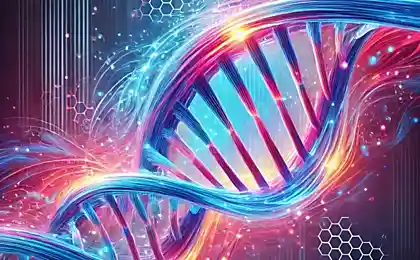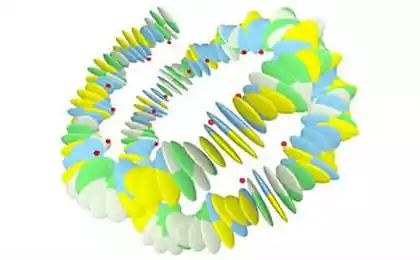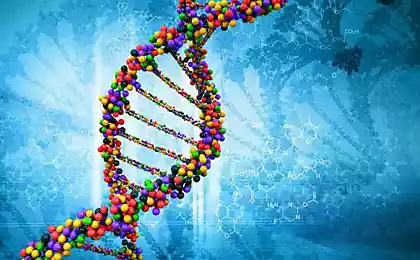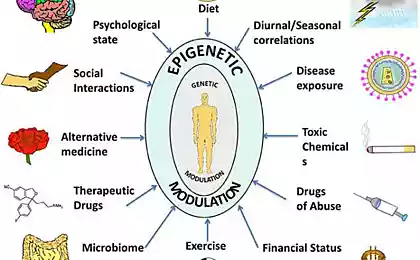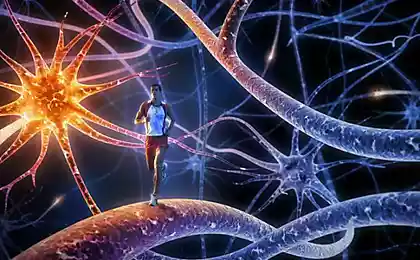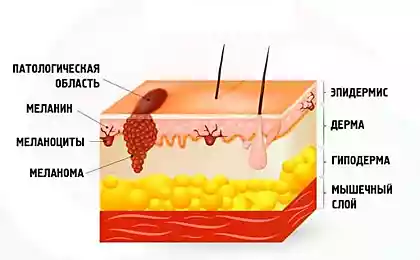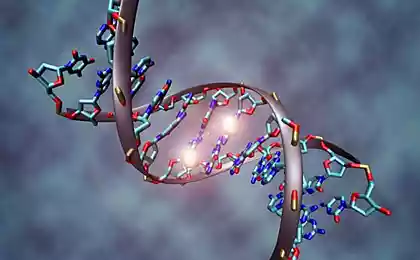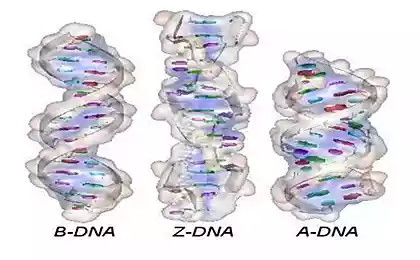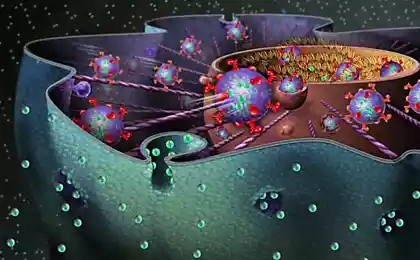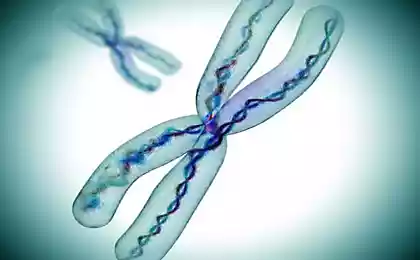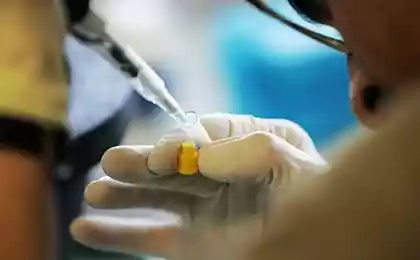45
8 traits your children will inherit from you
The scientific truth about what is passed from father to child at the genetic level

When we talk about heredity, the first thing that comes to mind is the resemblance. “He’s got daddy’s eyes,” “mommy looks like” – such phrases have heard everyone. But modern genetics has revealed a surprising truth: paternal DNA affects children far more profoundly than we thought. It’s not just about hair color or nose shape.
It turns out that there are traits and features that are transmitted exclusively or mainly along the paternal line. Some of them can dramatically affect your child’s life, from physical health to personality traits. Ready to know what “gifts” you will inevitably pass on to your offspring?
1. Growth - Dad's territory
If your father was a basketball player or, conversely, did not reach the top shelf, there is a good chance that this feature will pass on to you and your children. Although growth is influenced by both parents, paternal genes often play a crucial role.
A key role is played by the gene IGF (insulin-like growth factor), which stimulates cell division. Its activity depends on how much it is expressed in the paternal DNA. Interestingly, women have an IGF2R receptor that can limit growth.
But don’t be discouraged if you don’t meet model standards. Growth is influenced not only by genes - proper nutrition, physical activity and quality sleep in childhood can significantly "adjust" the genetic program. Genes determine potential, and the conditions of life determine how much potential is realized.
2. The sex of the child is exclusively a male prerogative
Many still do not know this fact, but the biological sex of the unborn child depends solely on the father. A woman always transmits the X chromosome, and a man either X (gets a girl) or Y (gets a boy).
So if only boys or only girls are born in your family, it’s you, not your spouse, who is to blame.

3. Mental health and age of the father
A really serious topic begins here. The older a man gets, the higher the risk of mutations in sperm DNA. This is due to the constant renewal of male germ cells - with each cycle, the likelihood of copying errors increases.
Studies show that children born to fathers over 45 have an increased risk of ADHD, autism spectrum disorders, bipolar disorder, and a tendency to anxiety.
But it is important to understand that this is an increased risk, not a sentence. Environment, upbringing, family lifestyle play an equally important role. Many children of “age” fathers grow up to be healthy and successful.
Practical recommendations:
- If you plan to have children after 40, consult a geneticist for advice.
- Living a healthy lifestyle reduces the risk of mutations
- Regularly undergo medical examinations
4. Diseases of the Y chromosome are exclusively male
The Y chromosome is a unique masculine trait that you only get from your father and pass on to your sons. It contains genes responsible for the formation of male characteristics: the growth of a beard, breaking the voice, sperm production.
But with this chromosome, certain diseases can also be transmitted if there are mutations in the genes. Rare hereditary pathologies include hypertrichosis (excess hair growth) and syndactyly (congenital fusion of fingers).
Because women do not have a Y chromosome, they are physically unable to pass these traits on to their children. This is purely a "papino inheritance."
5. Character traits - genetic copy of personality
It turns out that you can inherit from your father not only external traits, but also personality traits. Calmness, a desire for leadership, a penchant for solitude or a thirst for communication can all be embedded in genes.
Studies of twins show surprising results: even children raised in different families show a similar temperament. Scientists estimate that 30% to 60% of traits are hereditary.

If your father was stubborn, logical, or risk-averse, it is possible that you inherited not only his eyebrows, but also his habits.
6. Proneness to fat accumulation
In the body, there are two main types of adipose tissue - brown and white. Brown fat is involved in thermoregulation and is actively burned for energy. White fat is the one that is deposited on the stomach, sides and thighs.
An interesting fact: children get a tendency to brown fat from their mother, and a tendency to accumulate white fat from their father. If you have a weight problem, your child may have an increased genetic predisposition to obesity.
But this does not mean that fate is foregone! Proper nutrition, regular exercise, quality sleep and stress management – that’s what really shapes the figure.
7. Baldness isn't just mom's wine
A popular myth says that the tendency to baldness is transmitted exclusively through the maternal line. In fact, we can inherit alopecia from both parents, but sensitivity to dihydrotestosterone (DHT), a hormone that causes hair follicles to narrow, is often passed down the paternal line.
If your father or grandfather had an early baldness, especially in the temple and crown area, you and your children have a chance to face it at a young age.
Lifehack for future bald beauties:
- Start Preventive Hair Care in Advance
- Use special shampoos with minoxidil
- Accept the image of bald as a personal brand – many celebrities have proven it can be very stylish
8. Immunity: Dad's shield of protection
Some immune system genes behave differently depending on who gave them to children. Paternal DNA can activate genes that enhance the inflammatory response or make the body less susceptible to certain viruses.
There is a theory that men pass on unique immune markers to their offspring that increase resistance to a number of infections. If your father hasn't had a cold all his life, maybe his genes did give you strong immunity.
Practical conclusions for future fathers
Understanding genetic traits is not a cause for panic, but a tool for conscious planning. Knowing about the possible risks and features, you can:
- Maintain a healthy lifestyle to minimize negative mutations
- Planning the birth of children at an optimal age
- Prepare for possible features of child development
- Contact genetics for a personal consultation
Genes create potential, but they do not determine fate. Love, care, proper parenting, and a healthy environment can correct even the most unfavorable genetic predispositions.
Genetics is a fascinating science that helps us better understand ourselves and our children. But the most important thing you can pass on to your child is not specific genes, but a pattern of behavior, a value system, and unconditional love. These “hereditary traits” are often more important than any biological trait.
Glossary of terms
IGF (Insulin-like growth factor)
A protein that stimulates cell growth and division is especially important for bone and muscle growth during development.
Y chromosome
The sex chromosome that determines the male sex. It is transmitted exclusively from father to son and contains genes for male sexual characteristics.
Dihydrotestosterone (DHT)
A hormone derived from testosterone that affects the development of male sexual characteristics and can cause baldness.
alopecia
A medical term for baldness or pathological hair loss.
ADHD
Attention deficit hyperactivity disorder is a neurodevelopmental disorder characterized by problems with concentration.
Hypertrichosis
A rare genetic disease characterized by excessive hair growth on the body and face.
syndactyly
A congenital anomaly in which the fingers or toes fuse.
Relaxing massage in Kiev: the key to the harmony of body and mind
10 brain mechanisms responsible for habits and choices
